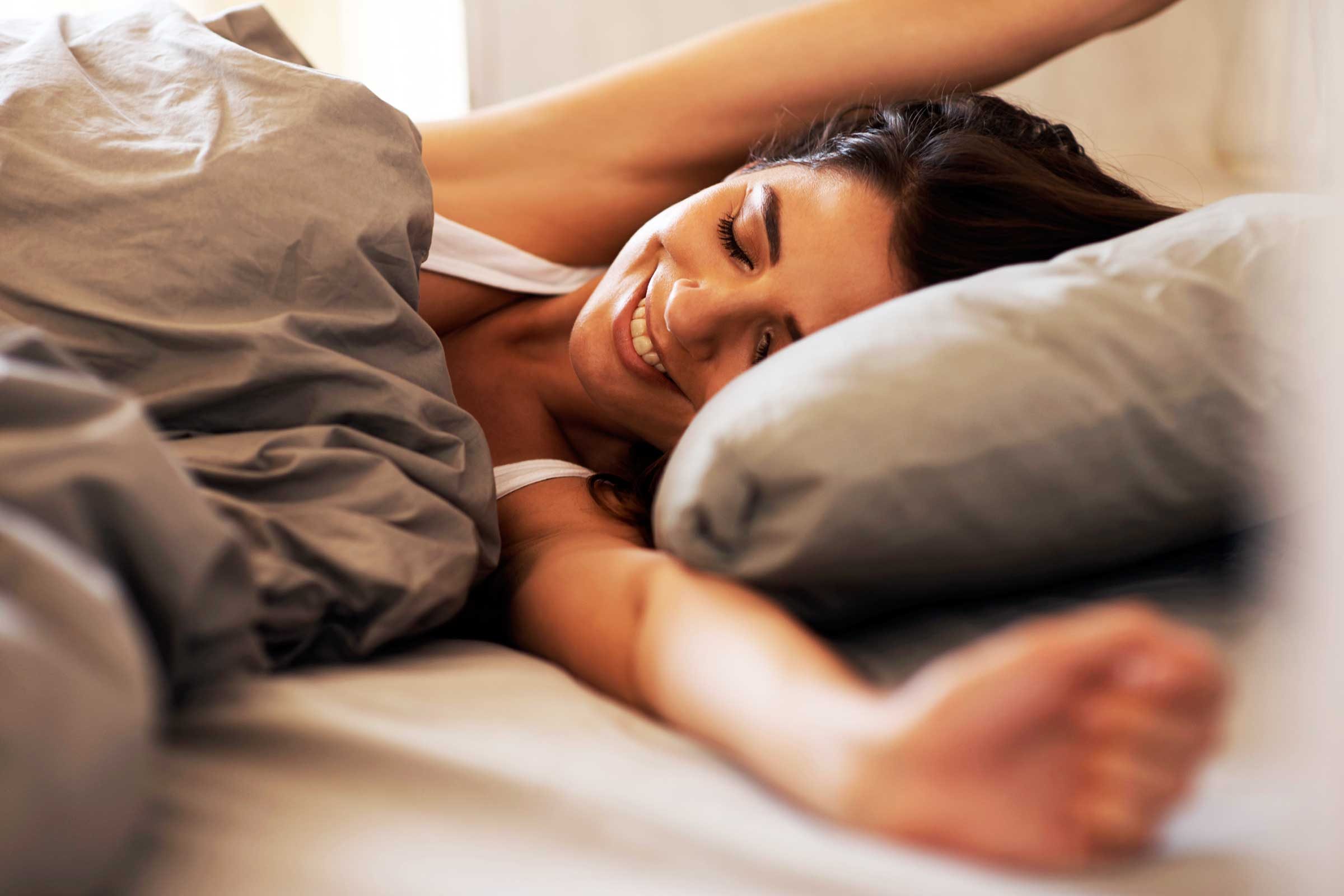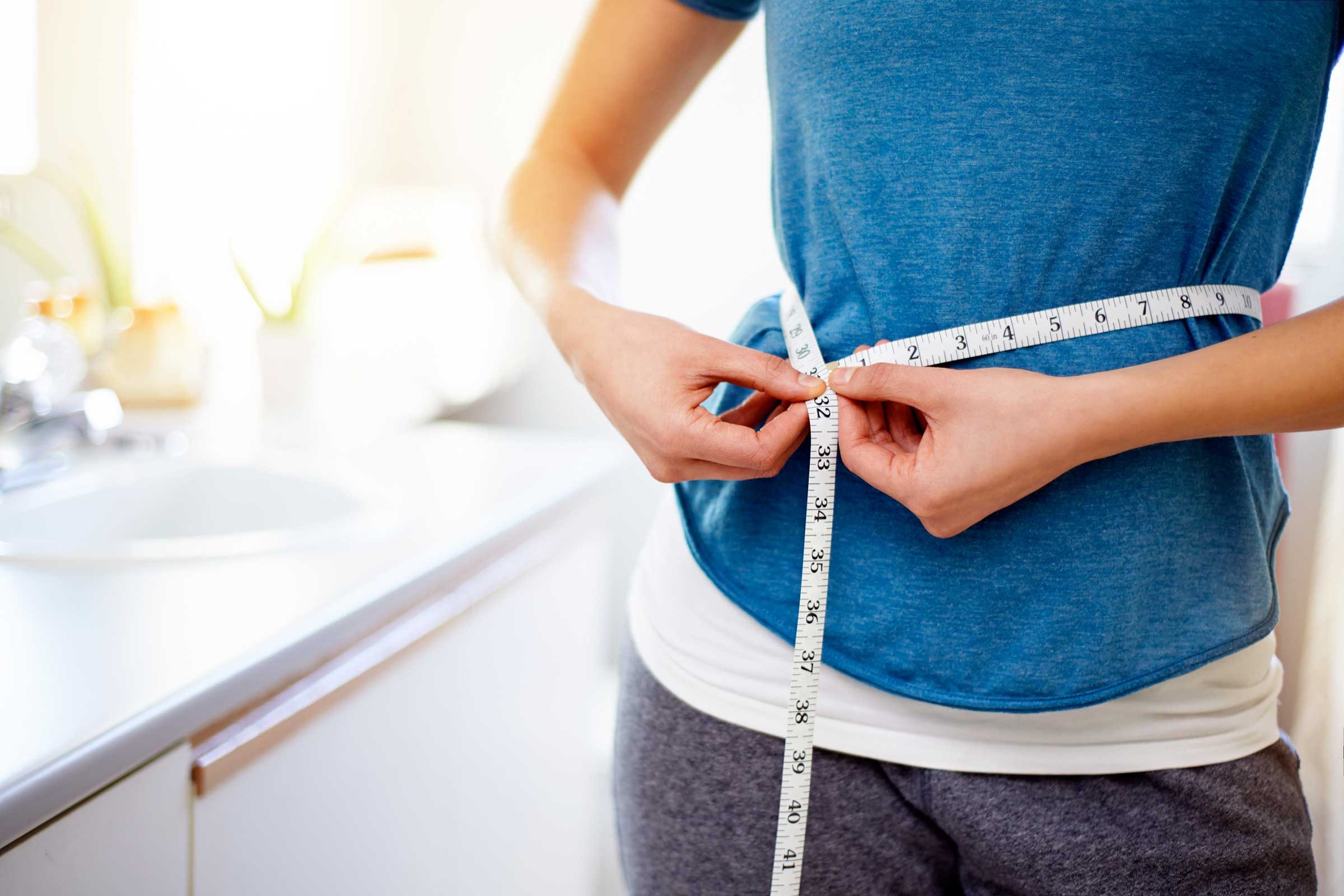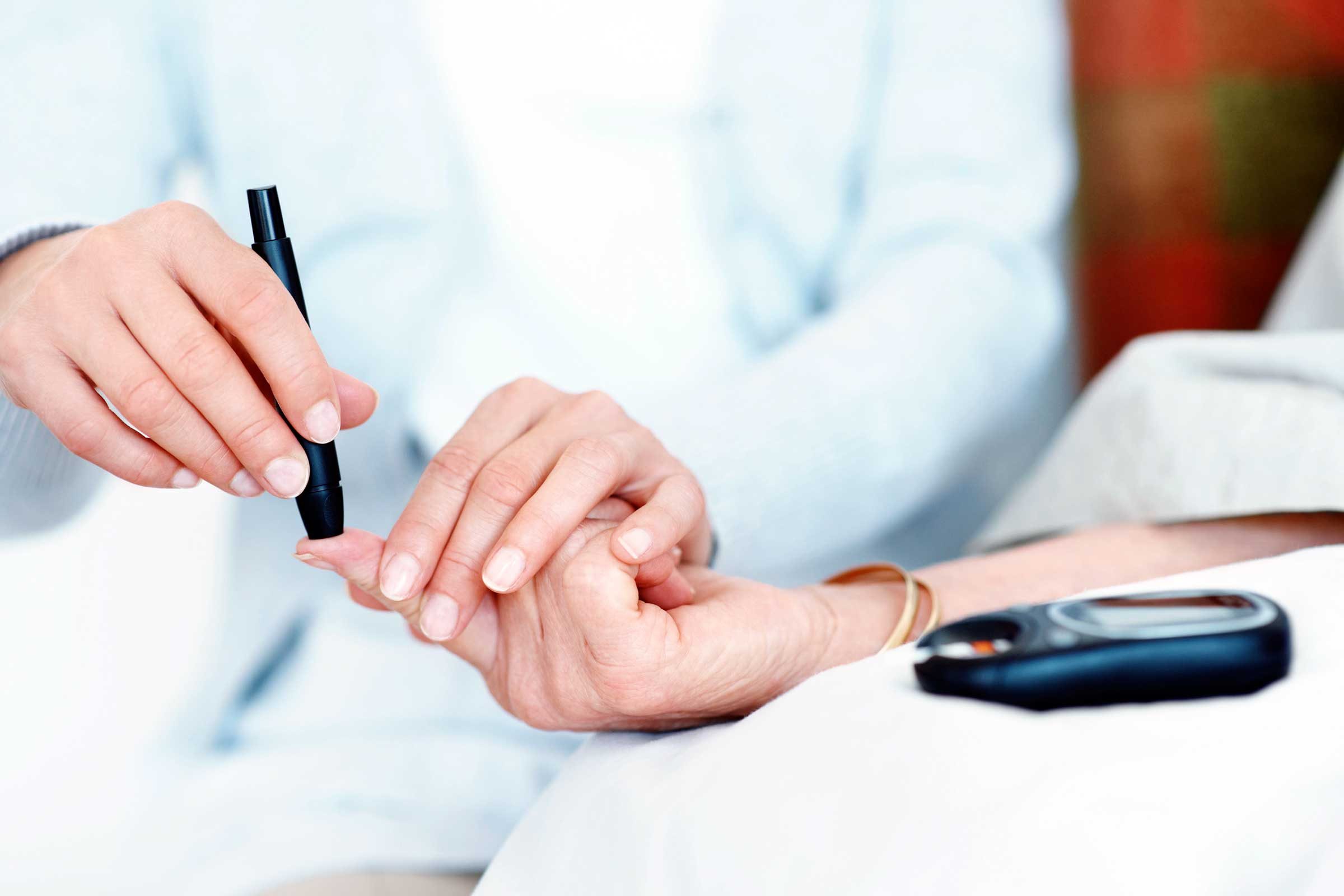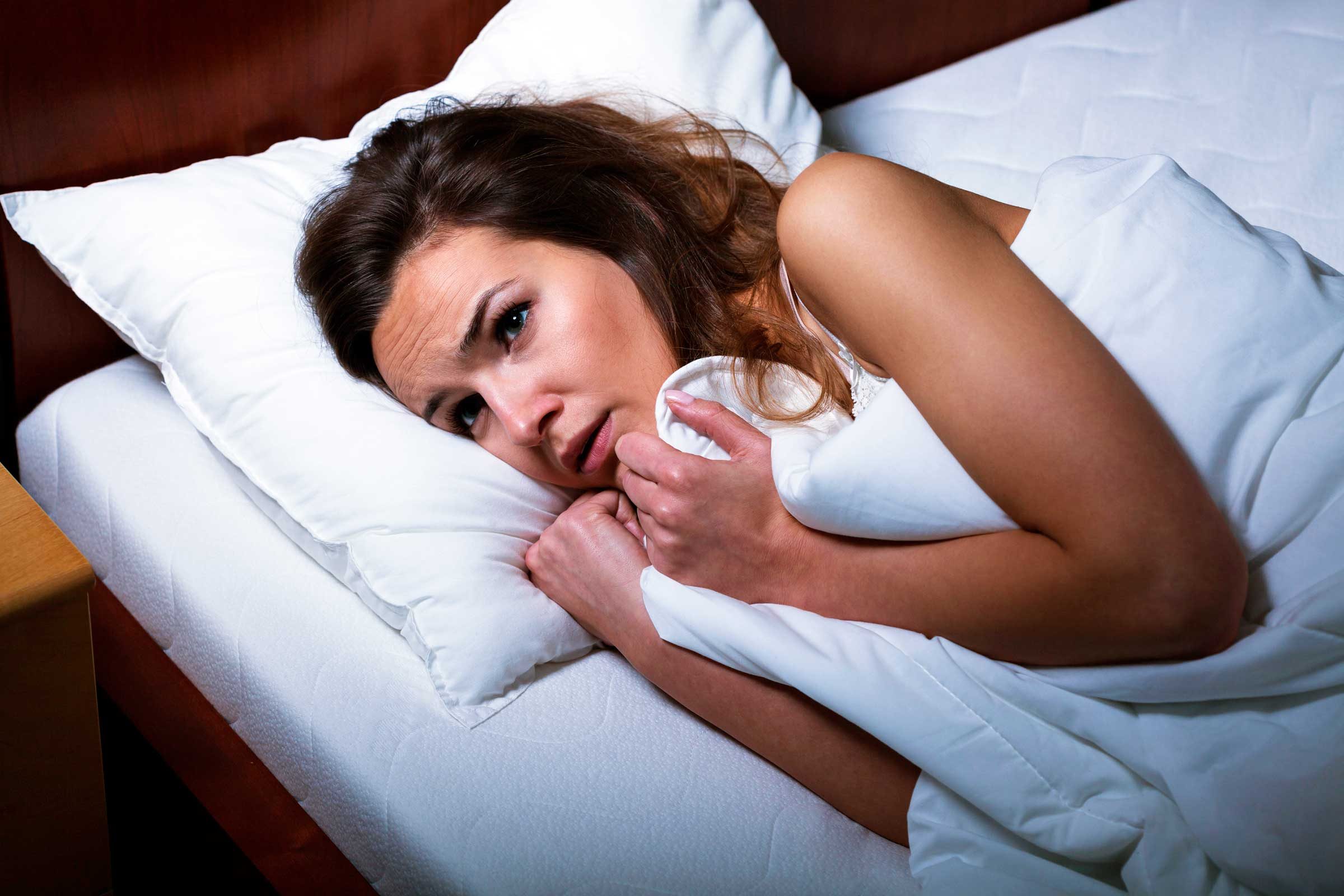Moving your bedtime up even by only 60 minutes could have huge benefits for your body, your mood, and your relationships.
You'll be less stressed
 ISTOCK/PEOPLEIMAGES
ISTOCK/PEOPLEIMAGES
Forget post-jog endorphins: an extra hour of sleep provides the ultimate mood boost. In a recent survey of more than 700 respondents aged 17 to 79, those who identified as early risers reported feeling happier and healthier than their night owl counterparts. Researchers say that when you skip out on the recommended seven to nine hours of sleep, exhaustion can create a wide array of negative impacts on the brain, including depression, anxiety, and other mood disorders. Being happier—and limiting your stress—could be as simple as getting an extra hour of sleep every night, and then rising and shining with the sun the next morning; doing so aligns your biological clock with its natural rhythm. Here are even more health advantages of being a morning person.
You'll be less cranky
 ISTOCK/PEOPLEIMAGES
ISTOCK/PEOPLEIMAGES
Our relationships lose when we don't snooze. After a sleepless night, you may feel more irritable, short-tempered, and vulnerable to stress, which can put a strain on families and friendships. And research confirms that we can all get a little crabby when we lose sleep. One study at the University of Pennsylvania found that subjects who were limited to only 4.5 hours of sleep per night for one week reported feeling more stressed, angry, sad, and mentally exhausted. When the subjects resumed their normal sleeping patterns, they reported a dramatic improvement in their dispositions. Getting more shut-eye will put you in a better mood, so you can spend quality time with friends or family without becoming a grouch. Here's how to have the best night's sleep ever.
You could have a safer commute
 ISTOCK/ANYABERKUT
ISTOCK/ANYABERKUT
It's dangerous to drink and drive, but drowsy driving can be disastrous, too. Getting behind the wheel when your mind is foggy and tired can alter your driving behavior, leading you to become impatient, stressed, or drive faster than you normally would after a solid eight hours of sleep. And drowsy driving is more common than you might think. A National Sleep Foundationsurvey found that 60 percent of adult driver—about 168 million people—say they have driven a vehicle while feeling sleepy in the past year, and that more than one-third (103 million people) have actually fallen asleep at the wheel. Catch an extra hour of Zzz's at night, and you can start having a more successful and productive commute.
You'll look better
 ISTOCK/DRAGONIMAGES
ISTOCK/DRAGONIMAGES
Even the best morning skin care routinecan't fully hide tired bags under your eyes from a sleepless night. A recent Swedish study found that when participants viewed images of people who were sleep-deprived or well-rested, the sleep-deprived people were rated as less attractive, less healthy, less approachable, and sadder. An adequate bedtime, on the other hand, can add a refreshed glow to your skin. Plus, getting that extra hour of sleep could do wonders for your workout; scientists in Brazil found that sleep deprivation can cause muscle loss and a higher chance of injuries because your body doesn't have the boost it needs to recover from exercise. Try these makeup tricks to help you look less tired.
You'll be more productive
 ISTOCK/UBERIMAGES
ISTOCK/UBERIMAGES
Hitting the sack later in the evening can ruin your nine-to-five workday. Concentration, memory, mathematical capacity, and logical reasoning decline when you're fatigued, keeping you from performing your best at work. In fact, one study found that subjects performed 30 percent better on a puzzle after waking up from a deep sleep than from light snoozing. Research has shown that sleep is essential for helping people solve complex problems, too. Simply put, setting back your bedtime by just one hour could give you a competitive advantage and make you more successful at your job; your boss will thank you, guaranteed.
You'll be thinner
 ISTOCK/AJ_WATT
ISTOCK/AJ_WATT
It's no secret that a lack of sleep can take a toll on your waistline. In a study published in the journal Sleep, researchers found that adults with late bedtimes gained more weight than those who hit the hay earlier. Another study published by the American Academy of Sleep Medicine found that Australian night owls were 1.5 times more likely to be obese than early risers and twice as likely to be physically inactive. Why? Your sleepy brain more likely to crave fatty, high-calorie snacks in the late hours of night. Experts say the culprit is an appetite-regulating hormone called leptin, which kick-starts the longer you're awake and makes your tummy rumble. If you turn in earlier, you'll avoid a late night binge and consume less daily calories. Here are ways to lose weight while you snooze.
You'll get sick less often
 ISTOCK/ANDREWSAFONOV
ISTOCK/ANDREWSAFONOV
Getting more sleep makes your immune system less vulnerable to viruses and bacteria. As you snooze, your immune system releases proteins called cytokines, which can protect you from infection; without sleep, your body isn't getting the boost it needs to fight off disease.
You could live longer
 ISTOCK/ABEL MITJA VARELA
ISTOCK/ABEL MITJA VARELA
Whoever said that sleep is for the dead was wrong! Getting more shut-eye can add years to your life by reducing your risk of a number of chronic diseases. Studies have shown that adults who habitually sleep less than six and a half hours of per night are more susceptible to type 2 diabetes, heart disease, and hypertension. Even with a healthy diet and regular gym time, an earlier bedtime can be a huge plus for your longevity. Here are more science-backed signs you could live to 100.
You'll have fewer nightmares
 ISTOCK/KATARZYNABIALASIEWICZ
ISTOCK/KATARZYNABIALASIEWICZ
Kiss your bad dreams goodbye. A 2010 studyfound that staying up late increased subjects' likelihood of having nightmares, particularly among females. Researchers suggest this might be because staying up and sleeping in late disturbs the body's natural circadian rhythm, disrupting your sleep cycle,and causing more dreams. Translation? It pays to snooze a little longer.
You'll boost your memory
 ISTOCK/VGAJIC
ISTOCK/VGAJIC
Remember that one all-nighter (or two, or three) that you pulled in college to study for a big exam? Turns out, you probably didn't retain much from those study sessions. In 2007, researchers found that sleep loss weakens long-term memory and decision-making skills. Since sleeping allows the brain to recover from the day, staying up late disrupts your REM sleep and impairs the brain's mechanism for memory storage. Sleeping more will enhance your memory, as well as these other habits of people with great memories.
You'll be on time
 ISTOCK/BRAUNS
ISTOCK/BRAUNS
We've all been there; you hit the snooze button on your morning alarm once, then twice, then three times... and then suddenly you wake up an hour later, and you have to rush to get ready before you miss your ride to work. By getting to bed an hour earlier, you can finally wake up on time, feeling refreshed and ready to seize the day (and the morning java!).

0 Comments